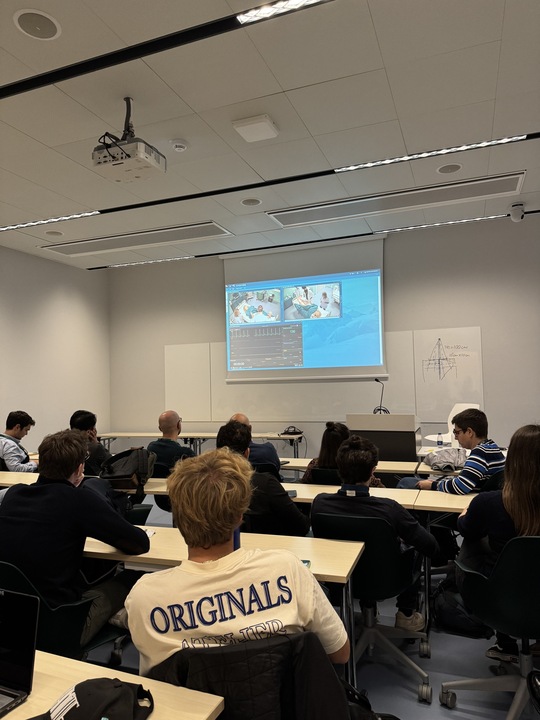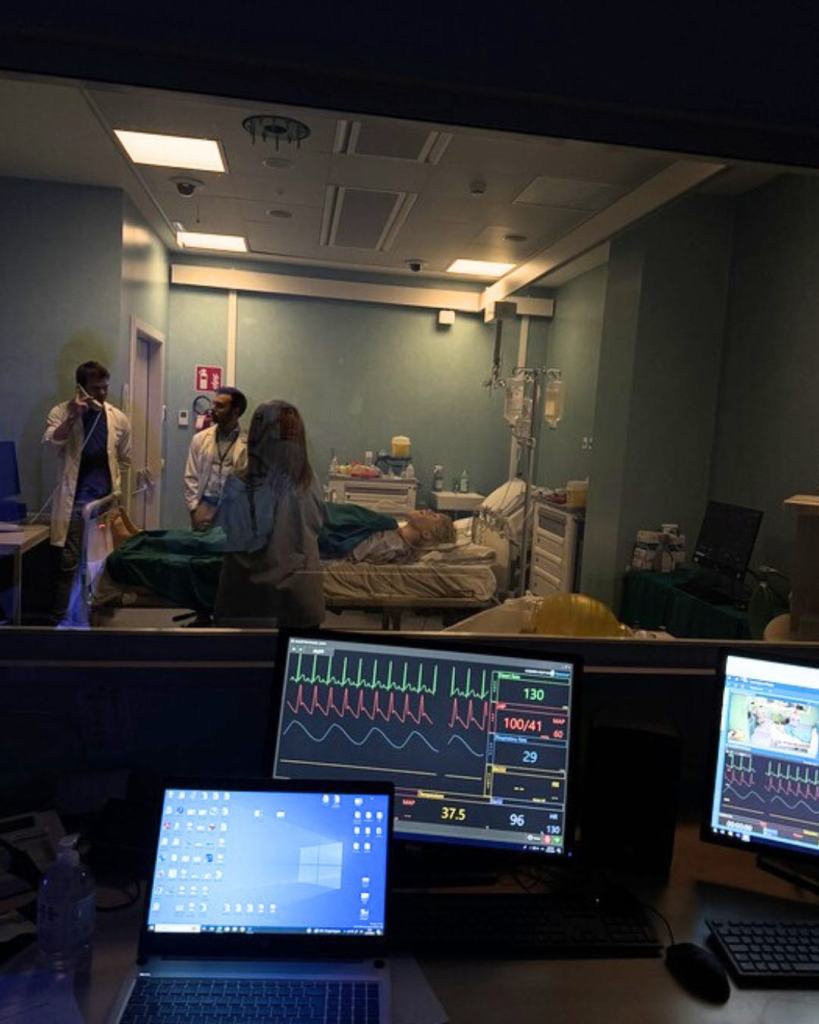Simulation Club: an interdisciplinary learning experience for all Specialisation Schools
The Humanitas University ‘Simulation Club’ is the clinical simulation training course aimed at the 500+ resident doctors from all Specialization Schools, regardless of their year of study. The Club was created following an idea of Dr. Claudia Ebm – Head of Data Insights and Strategic Development at Humanitas University, during the pandemic in 2020, with the aim of training the residents on transversal topics not strictly relevant to the specialisations.
Four years have passed, and the Club is still of great interest among resident doctors.
The aim of the ‘Simulation Club’ is to train doctors to recognise and deal with cases that they may encounter in clinical practice and that are of general interest, such as infections.
Sessions generally take place on the last Thursday of the month from 5 p.m. to 7 p.m. They are open to all, are free of charge and have no limit on the number of participants. During each meeting, two clinical cases are discussed. The pathologies that are selected for discussion are ones that doctors are very likely to come across, such as compartment syndrome or pulmonary embolism, and it is essential to be able to deal with them correctly.
‘Each time, a different Specialisation School is involved, and students are asked to prepare two clinical cases – explains Dr. Stefania Brusa – Head of Peri-Operative Orthopaedic Anaesthesia Section at IRCCS Istituto Clinico Humanitas and Scientific Coordinator at the Simulation Centre Humanitas University-. For example, the cases concern diseases that can occur in an orthopaedic ward and the orthopaedist might not have the clinical knowledge in that pathology to be able to recognise them’.
Each appointment is attended by two delegates from the School of Specialisation, presenting two clinical cases, and two facilitators, Dr. Stefania Brusa and Dr. Ana Carolina Del Pozo – Simulation Lecturer at Humanitas University. Lessons follow a sort of script in which certain events occur and the students can see how the two participants behave and what kind of actions they take on the dummies in the Simulation Center.


‘It is a very hands-on activity and involves all the participants through an initial test of eight to ten questions to understand the level of knowledge,’ informs the expert. ‘During the debriefing there is an opportunity to realign and key questions are formulated with an interactive “Wooclap” system. A very interesting element is how versatile the lesson can be, as it can change according to what happens during the debriefing and follows the training needs of the participants. Everything takes place in a non-judgmental environment, with an extremely effective learning methodology. – And the expert concludes – The results prove it. In fact, we go from 40 per cent correct answers on the first test to even 90 per cent correct answers after the simulation’.
